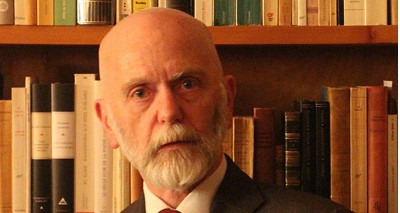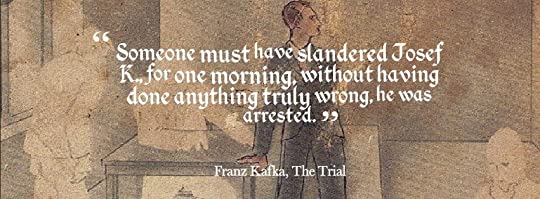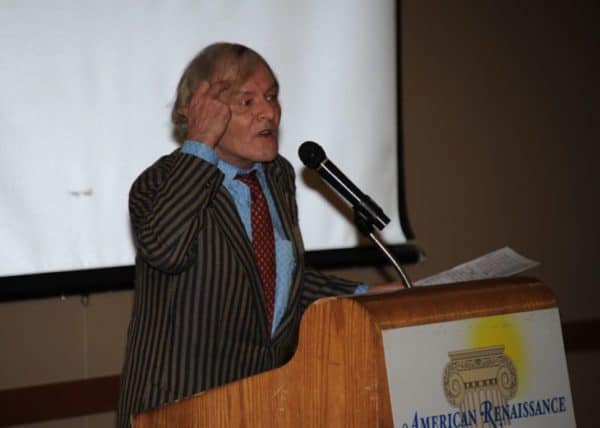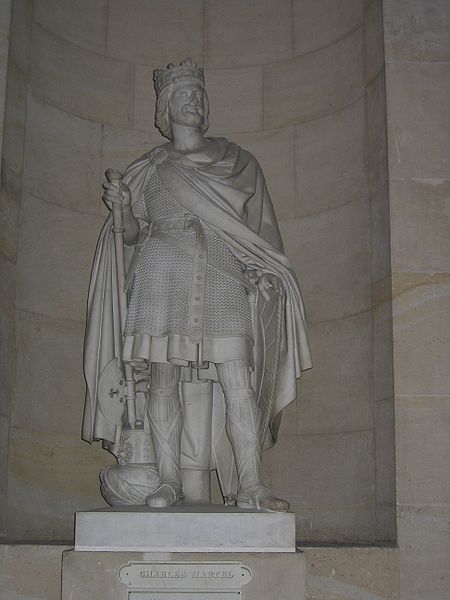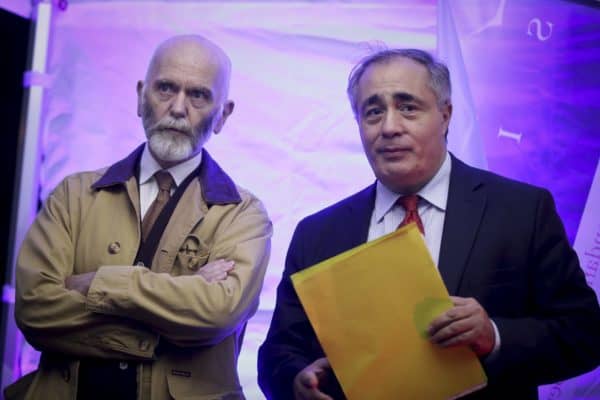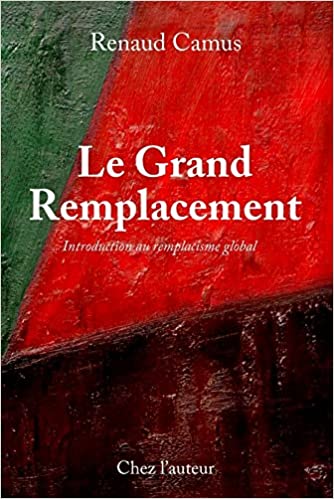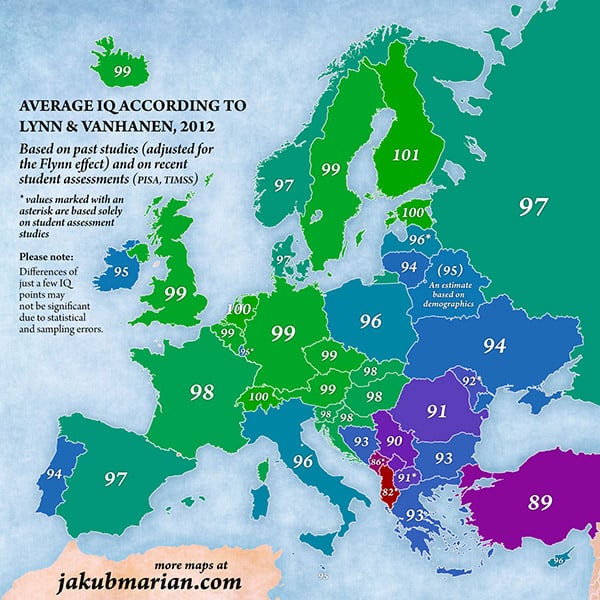Jean Renaud Gabriel Camus, co-founder and President of the National Council of European Resistance, is a French writer and political theorist known for coining the phrase “The Great Replacement,” which refers to the colonization of Western Europe by immigrants from Africa and the Middle East. He was to be a speaker at the 2020 American Renaissance conference, which was canceled because of Covid.
This interview has been translated from the French. Mr. Camus’ original answers are included.
Grégoire Canlorbe: Your outspokenness has led to a series of court appearances. Please tell the story of your misadventures with the Prosecutor’s Office.
Renaud Camus: Oh, it is more than the prosecutor’s office. It is a never-ending series of appearances before a whole hierarchy of different courts, usually on charges of incitement to racial hatred. It is also on that charge that I am usually found guilty. Of course, hate has absolutely nothing to do with it. There are no expressions of hatred in my writings, nor any attacks on people. But hatred is the very effective name that the replacist power has chosen to give to any opposition to genocide by substitution, to any resistance to the Great Replacement, to the slightest objection to the change of people and civilization. By the way, beware when people start to speak of your hatred: It usually means that they want to kill you, or at least to finish you off, to silence you.
Here is the tweet that earned me the most recent lawsuits:
A box of condoms donated to Africa means three fewer refugees drowned in the Mediterranean, a hundred thousand Euros saved in [French] welfare payments, two prison cells freed up, and three centimeters of sea ice preserved.
Une boîte de préservatifs offerte en Afrique c’est trois noyés en moins en Méditerranée, cent mille euros d’économie pour la Caf, deux cellules de prisons libérées et trois centimètres de banquise préservée.
— Renaud Camus (@RenaudCamus) April 18, 2019
This is a joke that shows not the slightest hatred, is without the least reference to race, that is a simple reflection of my constant concern for the population explosion everywhere, Europe eminently included, which makes all ecological policies pointless. Well, that joke could very well land me in jail, because it will undoubtedly lead to my conviction, and a new unfavorable verdict will void the suspension of my previous suspended prison sentence.
A young novelist, Thomas Clavel, has just published a novel, Un traître mot [A Single Word], which roughly accurately describes the current state of freedom of expression and repression in France. The book is alternative history, but barely. The penalties inflicted are a little heavier than those we undergo in reality; in the novel, one finds oneself doomed to years of prison and re-education for a single word. But in one or two years, France will probably arrive at the level of repression described in the novel. Reading A Single Word in Paris in 2020 is, relatively speaking, like reading Kafka’s The Trial in Moscow in 1936. In both cases, the literary exaggeration is minimal. And in Clavel, one is much more heavily punished for words than for deeds.
The authorities are letting criminals-of-action out of prison in order to replace them in cells with criminals-of-opinion. We are pretty much there. As I speak to you, the new Minister of Justice is releasing, under the pretext of coronavirus and prison overcrowding, hundreds or thousands of people convicted of theft, rape, armed assault, and other violent crimes. Is it to make room, and to fill the empty cells with people like us, who oppose the industrial crushing of races? The Keeper of the Seals said, upon assuming his duties, that his would be the ministry of anti-racism and the fight against hate. The “hatred” that he slays, as we have just seen, is opposition to demographic change. As for the anti-racism he promotes, it is the desire to mix and confound all races, in order to make them disappear, starting with whites. One will even say — one already says — that the white race has never existed, that it is a fantasy, a creation of the mind.
Oh, c’est plus que le bureau du procureur. C’est une série interminable de comparutions devant toute une hiérarchie de tribunaux divers, en général sous l’accusation d’incitation à la haine raciale. C’est également sous cette rubrique que je suis habituellement condamné. Bien entendu, de mon point de vue, la haine n’a strictement rien à faire là-dedans. Il n’y en a pas dans mes écrits, ni d’attaques contre les personnes. Mais haine est le nom très efficace que le pouvoir remplaciste a choisi de donner à toute opposition au génocide par substitution, à toute résistance au Grand Remplacement, à la moindre objection au changement de peuple et de civilisation. D’ailleurs, quand les gens commencent à perler de votre haine, il faut se méfier : c’est en général qu’ils veulent vous tuer, ou au moins en finir avec vous, vous faire taire.
À titre d’exemple voici le tweet qui me vaut les plus récentes poursuites :
Une boîte de préservatifs offerte en Afrique c’est trois noyés en moins en Méditerranée, cent mille euros d’économie pour la Caf, deux cellules de prison libérées et trois centimètres de banquise préservés.
Une plaisanterie, pas la moindre haine, aucune référence à la moindre race, et une simple reflet parmi d’autres de ma préoccupation constante quant à l’explosion démographique partout, Europe éminemment comprise, qui rend vaines toutes les politiques écologiques. Eh bien cette plaisanterie pourrait très bien me valoir de la prison, puisqu’elle entraînera sans doute ma condamnation, elle aussi, et que j’ai été condamné la dernière fois à de la prison avec sursis, sursis qu’un nouveau verdict défavorable ferait tomber.
Un jeune romancier, Thomas Clavel, vient de publier un roman, Un traître mot, qui décrit à peu près exactement la situation actuelle de la liberté d’expression et de la répression en France aujourd’hui. Le livre est une uchronie, mais à peine. Les peines infligées sont un peu plus lourdes que celles que nous subissons dans la réalité, pour un mot de travers on s’y voit infliger des années de prison et de rééducation, mais il suffira sans doute d’un ou deux ans pour qu’on en arrive pour de bon, dans la réalité, à ce qui est montré là. Lire Un traître mot à Paris en 2020, toutes proportions gardées, c’est comme lire Le Procès de Kafka à Moscou en 1936. Dans les deux cas, l’exagération littéraire est infime. Et chez Clavel on est beaucoup plus lourdement condamné pour des mots que pour des actes. Le pouvoir retire des prisons des criminels par action pour les remplacer dans les cellules par les criminels par opinion. On en est à peu près là. À l’heure où je vous parle le nouveau ministre de la Justice libère, sous prétexte de coronavirus et de surpopulation carcérale, des centaines ou des milliers de condamnés pour vol, viol, agression armée ou crimes de sang. Est-ce afin de faire de la place, et de remplir les cellules libérées avec des gens comme nous, qui nous opposons à l’écrabouillement industriel des races ? Le Garde des Sceaux a déclaré, lors de sa prise de fonctions, que son ministère serait celui de l’antiracisme et du combat contre la haine. La haine qu’il pourfend, nous venons de le voir, c’est l’opposition au changement de peuple. Quant à l’antiracisme qu’il promeut, c’est la volonté de mélanger et de confondre toutes les races, donc de les faire disparaître, à commencer par la blanche — on dira même, on dit déjà, qu’elle n’a jamais existé, qu’elle est un fantasme, une vue de l’esprit.
Grégoire Canlorbe: The late Guillaume Faye spoke very highly of you in his last published book Ethnic Apocalypse, commending your initiative in launching the NCER [National Council of European Resistance] and the speech you gave on that occasion in Colombey-les-Deux-Églises. He also praised your choice of words — Undifferentiated Human Matter — to characterize the way ordinary people are perceived by the cosmopolitan bourgeoisie. How much is your own reflection based on Faye’s neologisms, such as ethnomasochism and archeofuturism?
Guillaume Faye at the 2012 American Renaissance conference.
Renaud Camus: Oh, “ethnomasochism” is quite precious. I have a little more trouble with “archeofuturism,” which is so distinctively Faye-like that it becomes difficult to handle for anyone other than the term’s creator. But I have not given up on it. I have not exactly adopted it, but I make personal use of it.
Oh, “ethnomasochisme” est tout à fait précieux. J’ai un peu plus de mal avec “archéofuturisme” qui est si précisément fayen, ou fayesque, qu’il devient difficilement maniable par d’autres que son créateur. Mais je ne désespère pas, non certes de me l’approprier, mais d’être amené à en faire un usage personnel.
Grégoire Canlorbe: You claim to disapprove of all acts of violence, including those perpetrated against the perceived occupying authorities by native terrorists such as Brenton Tarrant in New Zealand and Patrick Crusius in the United States, both of whom used the phrase “The Great Replacement” in their manifestos. What do you reply to the claim that we are at war with certain extra-European races (for whom Islam serves as a rallying banner), and that in a time of war one cannot win without resorting to violence against the enemy?
Renaud Camus: Brenton Tarrant used the phrase without any reference to my books or to me, of whose existence he probably does not even know. The term must have seemed relevant to him during his stay in Europe; that is all. It must have seemed to him to describe the situation he was seeing — blindingly obvious as it is. The phrase is now everywhere on the continent. It is a household name [in English in the original text]: he adopted it — much good may it do him — though it has greatly complicated my life. As for Patrick Crusius, he refers to Tarrant and his manifesto “The Great Replacement,” and not in the least to me, of whom he probably knows even less than Tarrant. Their actions are enough to prove that they did not read me. They are as far removed as possible from in-nocence [neologism by Renaud Camus, meaning to do no harm], which is the central concept of my thinking. And their views are contrary to mine in almost every way. Tarrant is, for example an ardent natalist, while population growth is in my opinion one of the most serious threats to the planet; more than a threat, since it is already destroying everything there is to destroy.
Credit Image: Renaud Camus via Wikimedia
But more generally, your question seems to me to confuse two things that are certainly related, but quite different: violence and war. I repeat, one of the central concepts of my thinking is in-nocence non-nocence, non-nuisance, the fact of not harming. The in-nocence pact seems to me to be the nodal point of civilization and, incidentally, of ecology. I am therefore non-violent and all the more so since I see “nocence” — the fact of harming — in the small and large violences, the Afro-Muslim territorial conquest in France and in Europe, the means of the ethnic cleansing in progress, The Great Replacement. By nocence the colonizer makes streets, districts, entire towns uninhabitable to the indigenous populations, who are obliged to evacuate. It is the title of one of my first public speeches, at least in the political sphere: “Nocence, an instrument of the Great Replacement.” Nocence, or if you prefer criminality, large and small, from snatching an old lady’s handbag to mass terrorism, is the means of conquest. Nocence is what we have to fight with all our might: It is absolutely not what we have to adopt. Nothing would more stupid than to imitate the methods of our adversaries, even if they are successful for them. We must find our own way.
However, if as a promoter of in-nocence I am completely non-violent, on the other hand I am absolutely not a pacifist. Pacifism led to Munich, to the surrender to totalitarianism, to Vichy, and to the collaboration with Nazism. And just as surely we see today, exactly on the same structural model, anti-racism is leading before our eyes to genocide by substitution, to the destruction of Europeans in Europe, to the hateful eradication of whites and the civilizations they have built.
I am therefore totally opposed, it goes without saying, to the blind and indiscriminate acts of violence by Tarrant or Crusius. On the other hand, if unfortunately we had no other choice than submission or war, I would prefer war, without hesitation. It was the following sentence from my speech at Colombey-les-Deux-Églises, at the founding of the National Council of European Resistance, that earned me my most recent two-month suspended prison sentence:
That said, if unfortunately it happens that the only alternative left to us is submission or war, then war, a hundred times.
That was interpreted as a call for violence, which it is by no means. The paradox is that the judges today condemn the very attitude which led the heroes of the history of France to see their names given to streets and statues raised in their honor. It is true that many of those statues are now under threat of overthrow, and that the streets are renamed: The Great Replacement is also, of course, a replacement of history.
A statue of Charles Martel at the Palace of Versailles in France. (Credit Image: Thesupermat via Wikimedia)
Brenton Harrison Tarrant a fait usage du syntagme de grand remplacement sans la moindre référence à mes livres ou à moi, dont il ne connaît probablement même pas l’existence. L’appellation a dû lui sembler pertinente, voilà tout, lors de son séjour en Europe ; et paraître décrire avec exactitude la situation qu’il observait chez nous, d’autant qu’elle crève les yeux. Le syntagme est désormais partout sur le continent, c’est a householdname: il l’a adopté, grand bien lui fasse, quoique ça ait beaucoup compliqué ma vie. Quant à Patrick Crusius il se réfère à Tarrant et à son manifeste The Great Replacement, et pas le moins du monde à moi, qu’il connaît sans doute encore moins que ne me connaît Tarrant. Leurs actes suffisent à prouver qu’ils ne m’ont pas lu. Ils sont aussi éloignés que possible de l’in-nocence, qui est le concept central de ma réflexion. Et leurs vues sont contraires aux miennes presque en tout point. Tarrant est par exemple un ardent nataliste, alors que la croissance démographique est selon moi l’une des plus graves menaces qui pèsent sur la planète ; et plus qu’une menace, puisqu’elle détruit déjà tout ce qu’il y a à détruire.
Mais plus généralement votre question me semble confondre deux choses voisines, certes, mais tout de même assez différentes : la violence et la guerre. Je le répète, un des concepts centraux de ma réflexion est l’in-nocence, la non-nocence, la non-nuisance, le fait de ne pas nuire. Le pacte d’in-nocence me semble le point nodal de la civilisation et, accessoirement, de l’écologie. Je suis donc non-violent et cela d’autant plus que je vois en la nocence, le fait de nuire, la violence petite et grande, l’instrument même de la conquête territoriale afro-musulmane en France et en Europe, le moyen du nettoyage ethnique en cours, le Grand Remplacement. Par la nocence le colonisateur rend des rues, des quartiers, des villes entières inhabitables aux populations indigènes, qui sont obligées de les évacuer. C’est le titre d’une de mes premières interventions publiques, au moins dans l’ordre politique : “La Nocence, instrument du Grand Remplacement’. La nocence, ou si vous préférez la délinquance, petite et grande, de l’arrachage de sac de vieille dame au terrorisme de masse, est le moyen militaire de la conquête. La nocence, c’est ce qu’il nous faut combattre de toutes nos forces : ce n’est absolument pas ce qu’il nous faut adopter. Rien ne serait plus bête que d’imiter les méthodes de nos adversaires, même si elles lui réussissent : nous devons trouver les nôtres.
Cependant, si en tant que promoteur de l’in-nocence je suis tout à fait non-violent, en revanche je ne suis absolument pas pacifiste. Le pacifisme a mené à Munich, à la capitulation devant le totalitarisme, à Vichy et à la collaboration avec le nazisme. Et tout aussi sûrement nous voyons aujourd’hui, exactement sur le même modèle structurel, l’antiracisme mener sous nos yeux au génocide par substitution, à la destruction des Européens d’Europe, à l’éradication haineuse des blancs et des civilisations qu’ils ont bâties.
Je suis donc totalement opposé, il va sans dire, aux actes de violence aveugle et indiscriminants de Tarrant ou de Crusius. En revanche, si par malheur nous n’avions pas d’autre choix que le soumission et la guerre, je préfèrerais la guerre, alors, sans hésiter. C’est même cette partie de mon discours de Colombey-les-Deux-Églises, lors de la fondation du Conseil National de la Résistance Européenne, qui m’a valu ma plus récente condamnation à deux mois de prison avec sursis :
Cela dit, si par malheur il se trouvait que la seule alternative qui nous fût laissée soit la soumission ou la guerre, la guerre alors, cent fois.
Cela a été interprété comme un appel à la violence, ce que ce n’est en aucune façon. Le paradoxe est que les juges condamnent aujourd’hui exactement l’attitude qui a valu aux héros de l’histoire de France qu’on donne leur nom à des rues et qu’on leur élève des statues. Il est vrai que bon nombre de ces statues sont à présent sous la menace d’un renversement, et que les rues sont débaptisées : le Grand Remplacement est aussi, bien sûr, un remplacement de l’histoire.
Grégoire Canlorbe: It is not uncommon to view the cosmopolitan and replacist agenda of the political elite as the consequence of their alleged desire for repentance for the Holocaust, and that the sacralization of the Holocaust is the cause of anti-racist legislation, and the latter as the cause of mass immigration.
Another line of thought that is widespread among dissidents, from Eric Zemmour to Alain Soral through Martin Peltier, views the political elite’s interests as the same as those of the economic elite, and the economic elite wants the servility of the consumer and the mobility of human capital. The Muslim world, just like East-European Catholicism and the Orthodox-Slavic world, is an obstacle to a homogenous world market.
Which of those two lines of thought do you feel closer to?
Renaud Camus: Phew, that is a plateful, and there would be a thousand things to clarify, or correct. I will not speak of a “sanctification” of the Shoah, but I do believe that the very legitimate “never again!” about the death camps founded the legitimacy and the formidable power of anti-racism, which is probably the most powerful ideology in the world today. It is the superstructure of global replacism, for which it is the most valuable tool. It is what I called, in a small book of this title, The Second Career of Adolf Hitler: his career turned upside down, his career as an obsessed ghost, stopper of all arguments and reference of all references, endpoint of Godwin’s Law [that the longer an online discussion goes on, the more likely it is that someone or something will be compared to Adolf Hitler]. That second career is less blatantly criminal than the first, but it is of far greater consequence, such that his first career takes on the maddening character of a rehearsal.
The Second Career of Adolf Hitler by Renaud Camus (Credit Image: Renaud Camus via Flickr)
It must be seen that there have been two successive anti-racisms for three quarters of a century; and that the word has totally changed its meaning. It no longer means what it did. The first anti-racism was devoted to the very necessary protection of certain races particularly threatened or afflicted: the Jews, the blacks, the gypsies, the Indians, etc. The second anti-racism, born with the solemn proclamation of the dogma of the non-existence of races in the mid-1970s, contradictorily argues that races do not exist and that the races are all perfectly equal. The first of those precepts conceals the genocidal implications carried within the word “anti-racism” because if, “scientifically,” races do not exist, then they must disappear. If they have the bad taste of existing anyway, despite they dogma, they must be eradicated. That is especially true for the white race, the oldest, the most precious, the least numerous, the most hated, and the one which, for better or for worse, has played successively in the social hierarchy of the world and in its division of labor, the conquering role of the military nobility and then — hardly less vexatious for the rest of the world — the role of merchant bourgeoisie (and of the cultivated class linked to it). The history of the world is that of the eradication of aristocracies, be they of birth, fortune, or spirit — the three are often blended. And for the whites we are in 1793 [the beginning of the Reign of Terror].
However contradictory the two precepts of dogma — inexistence and equality of races — they are perfectly suited to global replacement, to the system of management of the human stock by Davos and by finance, the FAANGs [Facebook, Apple, Amazon, Netflix, Google] the pension funds, the banks, all of which want undifferentiated human matter (UHM): mixed, crushed, free of those white clots that needlessly increase costs. They demand matter whose every segment is freely replaceable — it is human Nutella, or Nutellhuman [Nutellom in the original].
September 24, 2015 – Paris, France: Renaud Camus and Karim Ouchikh at a SIEL (Sovereignty, Independence, and Liberty) demonstration in front of the German Embassy in Paris to protest the migratory hordes sweeping over Europe. (Credit Image: © Maxppp via ZUMA Press)
Back when the big financial interests had not yet figured things out, they believed that the right-wing parties were their best defenders. But they have become much smarter and see that leftist values — equality and anti-racism — best serve the demands of the industries of man and general human interchangeability. It is what makes Davocratic global replacism such a formidable adversary: It has on its side both the power of money and the intellectual and moral prestige of democratic and anti-racist virtue. It is as if [the fictional criminal master-mind] Doctor Mabuse had assumed the image of Martin Luther King or Nelson Mandela.
We are witnessing, as we often do, a reversal by cross-over. Since the second anti-racism henceforth plays, unlike the first, the role of the villain — an enemy no longer of racism, but of the races, that is to say a zealous servant of general interchangeability, of Undifferentiated Human Matter, of the industries of man — a new racism should consequently, and by symmetry, be able to assume the role of the good, of the defender of races, of all races, and of course the least numerous and the most threatened among them, the most hated, the most vilified: the white one. This new virtuous racism is the champion of human biodiversity and, as such, the only coherent ecologism.
Ouf, voilà une fameuse platée, et il y aurait mille choses à préciser, ou à corriger. Je ne parlerai pas d’une “sacralisation” de la Shoah mais je crois en effet que le très légitime “plus jamais ça !”, à propos des camps de la mort, a fondé la légitimité et le formidable pouvoir de l’antiracisme, probablement l’idéologie la plus puissante aujourd’hui dans le monde, comme superstructure du remplacisme global, dont elle est le plus précieux instrument. C’est ce que j’ai appelé, dans un petit livre de ce titre, La Seconde Carrière d‘Adolf Hitler : sa carrière à l’envers, sa carrière de fantôme obsessionnel, butoir de toutes les phrases et référence de toutes les références, point Godwin universel. Cette seconde carrière est moins manifestement criminelle que la première mais elle est de conséquence encore plus vaste, suggérant pour elle, avec le temps, le caractère affolant d’une répétition (rehearsal).
Il faut bien voir qu’il y a eu successivement deux antiracismes, depuis trois quarts de siècle ; et que le mot, en passant de l’un à l’autre, a totalement changé de sens : il ne désigne plus du tout la même chose. Le premier antiracisme se vouait à la protection très nécessaire de certaines races particulièrement menacées ou éprouvées : les juifs, les noirs, les tziganes, les indiens, etc. Le deuxième antiracisme, né avec la proclamation solennelle du dogme de l’inexistence des races, vers le milieu des années soixante-dix, soutient contradictoirement que les races n’existent pas et qu’elles sont toutes parfaitement égales. Le premier de ces préceptes recèle toutes les implications génocidaires que comporte ce nom, antiracisme : car si, en théorie, “scientifiquement”, les races n’existent pas, alors il faut qu’elles disparaissent, qu’elles soient éradiquées, au cas où elles auraient le mauvais goût d’exister quand même, en dépit du dogme ; et cela vaut tout spécialement pour la race blanche, la plus vieille, la plus chère, la moins nombreuse, la plus haïe, celle qui, pour le meilleur et pour le pire, a joué successivement, dans la hiérarchie sociale du monde, et dans sa division du travail, le rôle conquérant de la noblesse militaire, d’abord, puis celui, à peine moins vexatoire pour le reste du monde, de la bourgeoisie marchande (et de la classe cultivée qui lui était liée). L’histoire du monde est celle de l’éradication des aristocraties, qu’elle soient celles, souvent partiellement confondues, de la naissance, de la fortune ou de l’esprit. Et pour les blancs nous sommes en 1793.
Tout contradictoires que soient les deux préceptes du dogme, inexistence et égalité, ils font parfaitement l’affaire du remplacisme global, la davocratie, le système de gestion du parc humain par Davos et par la finance, les gafas, les fonds de pension, les banques, qui veulent pour leurs affaires et pour celles des industries de l’homme une matière humaine indifférenciée (MHI), métissée, broyée, débarrassée de ces caillots blancs qui font inutilement monter les coûts : ils exigent une matière dont chaque segment est remplaçable à merci — c’est le Nutella humain, ou Nutellom.
Jadis les grands intérêts financiers étaient un peu bêta, ils croyaient que les partis de droite étaient leurs meilleurs défenseurs. Mais ils sont devenus beaucoup plus malins et voient bien que ce sont les valeurs de gauche, l’égalité et l’antiracisme, qui servent le mieux les exigences des industries de l’homme et de l’interchangeabilité générale. C’est ce qui fait du remplacisme global davocratique un adversaire si redoutable : il a pour lui à la fois la puissance de l’argent et le prestige intellectuel et moral de la vertu démocratique et antiraciste. C’est comme si le Docteur Mabuse avait acheté l’image de Martin Luther King ou de Nelson Mandela.
On assiste, comme souvent, à un renversement en chiasme. Puisque le second antiracisme joue désormais, contrairement au premier, et comme le portait son nom, le rôle du méchant — ennemi, non plus du racisme, mais des races, c’est-à-dire serviteur zélé de l’interchangeabilité générale, de la Matière Humaine Indifférenciée, des industries de l’homme —, le second racisme devrait en conséquence, et par symétrie, pouvoir assumer à son tour, dans ce double renversement en x, et de même comme le portait son nom à lui, le rôle du gentil, du défenseur des races, de toutes les races, et bien sûr de la moins nombreuse et de la plus menacée d’entre elles, la plus détestée, la plus vilipendée, la blanche. Ce nouveau racisme vertueux est le champion de la biodiversité humaine et, en tant que tel, le seul écologisme cohérent.
Grégoire Canlorbe: You fully own your flamboyant past as a homosexual libertine.
Renaud Camus: I own it, I certainly do, but I do not make a big deal out of it either.
J’assume, j’assume, certes… Je n’en fais pas toute une histoire non plus.
Grégoire Canlorbe: The elites promote miscegenation, and some whites practice it. Is it the same among white homosexuals?
Some of the new interracial dating emojis.
Renaud Camus: Oh, I presume so, yes, but I am not really a specialist on that question. Because I once co-wrote a little book, Incomparable, with an Arab named Farid Tali, and immediately afterwards went on television with an interviewer who made a big deal out of it, according to urban legend I have a particular passion for Arabs. It is all the more comical because I had written earlier that I was hardly interested in Arabs, specifically, and that their sexuality in general was hardly compatible with mine, and had suffered the wrath of [leftist French journalist] Edwy Plenel who, of course, called me a racist. Those media constructions of “image” remind me of this allegory of error: A visitor to my house enters the library and spots a shelf of books in Italian — representing about half a hundredth of the collection — and cries out: “Ah, the owner is Italian!” (As if someone should have warned him).
Oh, je présume que oui, oui, mais je ne suis pas vraiment un spécialiste de la question. Comme j’ai écrit un jour à quatre mains un petit livre, Incomparable, avec un arabe nommé Farid Tali, et suis passé à la télévision aussitôt après avec un intervieweur qui en a fait tout un plat, la légende urbaine veut maintenant que j’ai une passion particulière pour les arabes. C’est d’autant plus comique qu’ayant écrit plus tôt que je ne m’intéressais guère aux arabes, justement, et que leur sexualité en général, avais-je cru observer, n’était guère compatible avec la mienne, j’avais subi les foudres d’Edwy Plenel, déjà, et m’étais fait traiter de raciste, bien entendu, suivant l’usage. Tout cela, ces constructions médiatiques d‘“image”, me fait toujours penser à cet apologue où je vois l’allégorie même de l’erreur : visiteur, chez moi, qui, entrant dans la bibliothèque, et repérant aussitôt, à droite de l’entrée, un département de livres en italien, lequel représentait à peu près un demi-centième de l’ensemble, s’écriait : “Ah, le propriétaire est italien!” (comme si on avait dû le prévenir).
Grégoire Canlorbe: It is clear you distance yourself from Nazism. How do you assess the popularity of Nazism among new right-wingers? When a young person displays a swastika, does it reflect an endorsement of the National Socialist program or does it mean only desire to see France and Europe freed from extra-European settlers and from the anti-racist organizations orchestrating The Great Replacement?
Renaud Camus: I do not have to highlight my social and doctrinal “distancing” from Nazism, never having had the slightest affinity with it. I believe that the anti-replacists of my kind, furiously opposed to the industries of man, that is to say to the assembly lines of death, to the camps, to the gulag, to the universal slum which is the inevitable end point and the constant secretion of global replacism, are the only consistent anti-Nazis, just as they are the only consistent ecologists. When I was leading a list of candidates for the European elections and discovered that it included a young candidate who had been photographed having fun drawing a swastika in the sand of a beach, I withdrew from the list because at that point I could no longer remove the candidate from the list.
Je n’ai pas à mettre en évidence ma “distanciation” sociale et doctrinale avec le nazisme, n’ayant jamais eu avec lui la moindre affinité, c’est le moins qu’on puisse dire. Je crois au contraire que les antiremplacistes de ma sorte, furieusement opposés aux industries de l’homme, c’est-à-dire aux chaînes de montage de la mort, aux camps, au goulag, au bidonville universel qui est l’horizon indépassable et la sécrétion constante du remplacisme global, sont les seuls antinazis conséquents, de même qu’ils sont les seuls écologistes conséquents. Lorsque j’ai découvert qu’il y avait sur la liste que je dirigeais pour les élections européennes une jeune candidate qu’une photographie montrait s’amusant à tracer dans le sable d’une plage une croix gammée, comme je ne pouvais plus retirer la candidate, à ce stade, j’ai retiré la liste.
Grégoire Canlorbe: What are your views on ecology, on the European and Faustian desire always to produce more, and on the eugenic views of Francis Galton and Richard Lynn?
Renaud Camus: I am not in the least an anti-ecologist, quite the contrary; and if I find fault with environmentalists, it is that they are not environmentalist enough. So long as they do not care about population growth, which is the root cause of nearly all environmental ills (and many others), anything they suggest is futile. They pose as defenders of biodiversity, and it would be wonderful if they really were, but they attach no importance to its most precious element, human biodiversity, that of races, civilizations, cultures; worse still, being almost all antiracists and immigrationists, they are determined to destroy human biodiversity through mass immigration and the ethnic substitution that implies. They practice occupying preference [parodying the expression “national preference,” meaning a preference for the French], like journalists and judges in the service of Davocracy. And, to top it off, they put no value on the beauty of the world, thereby rendering all their efforts pointless and all their ideas meaningless.
Thus, on the grounds of supporting renewable energies — and of course they are desirable — instead of campaigning for photovoltaic tiles (tiles, not plates), they destroy all landscapes by putting their damned wind turbines everywhere, which tell man that there is no way out, especially not upwards; they even rob him of the sky, and cut him off from any spatial representation of transcendence, which no longer has any refuge except in books and thought, having been driven out of physical space. In that world of the false, which is global replacism, that universe of replacement, substitution, of the fake, those who are not native to France usurp the name of “indigenous” and hope to replace the real natives (us) with transported, imported invasive populations. Then there are the decolonials [former colonized people living in France], who have become our colonizers. In what I call false reality (the world of the fake, with everything turned upside down), it is in language that we find the most lies. We are the only natives, the only decolonials too, the only anti-colonialists, the only anti-totalitarians, the only environmentalists.
Lauragais, France: Wind turbines in the middle of wheat fields.(Credit Image: © Batard Patrick / Abaca via ZUMA Press)
I am in no way hostile to economic shrinkage, not even to deindustrialization, starting with the deindustrialization of culture, that of what are ironically called the “cultural industries.” I think that man has gone to the very end of himself and that he can see it is not pretty. Now he must go back, as best as he can.
As for the Faustian impulse, it is a pact with the devil which, for my part, I am absolutely not ready for. The face of Nemesis is more and more clear. If there is to be movement, it must be towards doing things moderately, in full conformity with the foundational Greek ideal. Race is far from being purely genetic, as the worst racists and the stupidest anti-racists have claimed, but it has the merit of being, and it must be preserved as such. IQ issues are certainly crucial, and recent declines are maddening, although I believe they have as much due to with the collapse of school systems, to the failure of transmission, the change in cultural references, with the passage from culture to cultural industries (what I call The Small Replacement), as with the change of people (The Great Replacement).
I suspect Richard Lynn must be distraught by the recent proposal of Boris Johnson, who offered the hospitality of Great Britain to three million Hong Kong people who would be driven out of Hong Kong by communist repression. It stupefies me that this proposal has gained favor even in certain anti-antiracist circles: It’s a master stroke! They will be good immigrants, the Hongkongers, with high IQs, hardworking, little inclined to delinquency, violence and nocence, and will integrate wonderfully. But as for me, I have no desire that they integrate!
I am in despair at The Great Replacement in Great Britain as much as in France. And I find very little consolation in the British being replaced by Chinese instead of Sudanese or Pakistanis. Why do they need to be replaced? Because of your Faustian ideal of perpetual growth and development? Can they not stay English? Whether they are replaced by Mandarins or Hottentots, the crime and the loss will be no less.
Comme le montre l’extrême longueur de votre question, elle est plus un exposé de vos vues qu’une interrogation sur les miennes. Pour ma part je ne suis pas le moins du monde antiécologiste, bien au contraire ; et si j’ai un reproche à faire aux écologistes c’est de l’être trop peu, écologistes. Dans la mesure où ils ne se préoccupent pas de la croissance démographique, qui est la cause de presque tous les maux environnementaux dont souffre la Terre (et de beaucoup des autres), tout ce qu’ils peuvent proposer est totalement vain. Ils se posent en défenseurs de la biodiversité, et ils auraient bien raison de l’être, mais ils n’attachent aucune importance à son versant le plus précieux, la biodiversité humaine, celle des races, des civilisations, des cultures ; pis encore, antiracistes et immigrationnistes qu’ils sont presque tous, ils s’acharnent à la détruire, cette biodiversité humaine, par l’immigration de masse, qu’ils favorisent, et par la substitution ethnique qu‘elle implique. Ils pratiquent assidument la préférence occupante, comme les journalistes et les juges au service de la davocracie. Et, pour couronner le tout, ils n’accordent aucun prix à la beauté du monde, ce qui achève de rendre tous leurs efforts sans portée et toutes leurs idées sans substance. Ainsi, au motif de soutenir les énergies renouvelables, et certes on ne saurait trop, et au lieu de militer par exemple pour la généralisation des tuiles photovoltaïques (des tuiles, pas des plaques), ils détruisent tous les paysages en semant partout leurs maudites éoliennes, qui disent à l’homme qu’il n’y a pas d’issue, surtout vers le haut ; qui lui ravissent même le ciel, et le coupent de toute figuration spatiale de la transcendance, qui n’a plus de refuge que dans les livres et la pensée, ayant été chassée de l’espace sensible. Dans ce monde du faux qu’est par définition le remplacisme global, cet univers du remplacement, de la substitution, du toc, ils usurpent leur nom, comme le font en France les prétendus “indigènes”, qui sont précisément ceux qui ne le sont pas, indigènes ; et les non moins prétendus “indigénistes”, qui sont ceux qui prétendent remplacer les véritables indigènes (nous) par des populations invasives transportées, importées ; ou encore les insolents et cyniques “décoloniaux”, qui sont nos colonisateurs. Dans ce que j’ai appelé le faussel (falseal, le monde du faux, le réel à l’envers), ce qui ment le plus, c’est la langue. Les seuls indigènes c’est nous, les seuls décoloniaux aussi, les seuls anticolonialistes, les seuls antitotalitaires, les seuls écologistes.
Je ne suis nullement hostile à la décroissance, moi ; pas même à la désindustrialisation, à commencer par la désindustrialisation de la culture, celle des autocontradictoires “industries culturelles”. Je pense que l’homme est allé jusqu’au bout de lui-même et qu’il peut constater que ce n’est pas très joli. Il lui faut à présent revenir en arrière, comme il pourra.
L’élan faustien implique un pacte avec le diable auquel, pour ma part, je ne suis absolument pas prêt. Le visage de la Némésis est de plus en plus net. Si élan il y a il doit être désormais un élan vers la mesure, en pleine conformité d’ailleurs avec le fondateur idéal grec. La race est bien loin d’être purement génétique, comme le voulaient les pires racistes et les plus stupides antiracistes après eux. Elle a d’abord le mérite d’être, et elle doit être conservée en tant que telle. Les questions de Q.I. sont certes capitales, et l’effondrement récent est bien entendu affolant, encore que je le crois dû tout autant à l’effondrement des systèmes scolaires, à l’échec de la transmission, au changement de référence culturelle, avec le passage de la culture aux industries culturelles (le Petit Remplacement), qu’au changement de peuple (le Grand Remplacement).
Je dois dire que je soupçonne un peu Richard Lynn de n’être pas autrement affolé par la proposition récente de Boris Johnson, qui a offert l’hospitalité de la Grande-Bretagne à trois millions de Hongkongais qui seraient chassés de Hong-Kong par la répression communiste. Cette proposition fait l’objet d’une certaine faveur qui me stupéfie, même dans les milieux antiantiracistes : ah, s’écrie-t-on, coup de maître, voilà cette fois-ci, de bons immigrés, les Hongkongais, dotés d’un fort Q.I., travailleurs, peu portés sur la délinquance, la violence et la nocence, et qui devraient s’intégrer à merveille. Mais je n’ai aucun désir qu’il s’intègrent, moi ! Le Grand Remplacement me désespère tout autant en Grande-Bretagne qu’en France. Et que les Anglais soient remplacés par des Chinois au lieu de l’être par des Soudanais ou des Pakistanais, je trouve que c’est une très maigre consolation. Pourquoi faut-il qu’ils soient remplacés ? À cause de votre idéal faustien de croissance et de développement perpétuels ? Ne peuvent-ils pas rester anglais ? Qu’on les remplace par des mandarins ou par des hottentots, le crime n’en sera pas moindre, ni la perte moins grande.
Grégoire Canlorbe: You were to be on the program for the 2020 American Renaissance conference. What changes do you see taking place in the United States?
Renaud Camus: I had been very kindly invited to this year’s American Renaissance conference, and I was to go, but the coronavirus decided otherwise. I have since been severely ill, and having barely come out of a long hospital stay, I cannot be sure of my future plans. Certainly, America does not lack for refuges for the spirit, and they are generally admirably kept up. However, they risk becoming museums of a vanished civilization if, in changing its people, the country also changes its civilization, which is inevitable in such cases. Already the ties with Europe are fraying, as the nation is less and less populated by Europeans. This was observed in Barack Obama’s time as much as it is under Donald Trump, who probably could not find Austria or Portugal on a map. The Great Deculturation clearly increases the phenomenon of de-Europeanization: the culture of North America being essentially European, as the museums testify, and the less there is of culture, the less there is of Europe.
Credit Image: Renaud Camus via Wikimedia
The United States is less and less an Atlantic power and more and more a Pacific state. The Pacific therefore becomes the inland sea of trade (and probably conflict). It will be so as long as Europe, traumatized by the Second World War (The Second Career of Adolf Hitler), does not decide to re-enter history by becoming a military power and by ending, through decolonization and remigration, the change of people to which it is subject.
J’avais été très gentiment invité à celle de cette année, et je devais m’y rendre, mais le coronavirus en a décidé autrement. Comme j’en ai été moi-même très sévèrement atteint, et sors à peine de longs séjours à l’hôpital, je ne peux pas présumer de mes forces à l’avenir. Mais certes les demeures de l’esprit ne manquent pas, aux États-Unis. Elles sont en général admirablement tenues. Cependant elles risquent de devenir les musées de civilisations disparues si, en changeant de peuple, le pays changeait aussi de civilisation, comme il est inévitable en pareil cas, l’un impliquant nécessairement l’autre. Déjà les liens avec l’Europe se distendent singulièrement, à mesure que la nation est de moins en moins peuplée d’Européens. On l’observait au temps de Barack Obama tout autant que sous Donald Trump, qui ne saurait probablement pas placer sur une carte l’Autriche ou le Portugal. La Grande Déculturation accroît d’ailleurs nettement le phénomène de déseuropéanisation : la culture de l’Amérique du Nord étant essentiellement européenne, comme en témoignent les musées, moins il y a de culture moins il y a d’Europe. Les États-Unis sont de moins en moins une puissance atlantique et de plus en plus un État du Pacifique. C’est le Pacifique, désormais, la mer intérieure des échanges (et probablement des conflits). Il en ira ainsi aussi longtemps que l’Europe, traumatisée par la Seconde Guerre mondiale (La Seconde Carrière d’Adolf Hitler, toujours…), ne se décidera pas à rentrer dans l’Histoire, en devenant une puissance militaire et en renversant, par la décolonisation et la remigration, le changement de peuple dont elle est l’objet.
Grégoire Canlorbe: Thank you for your time. Is there something you would like to add?
Renaud Camus: Genocide by substitution, or Great Replacement, or change of people and civilization, in short the destruction of the Europeans of Europe, is the XXI century’s crime against humanity. It is arguably the worst monstrosity in history, perhaps not the most criminal, for it is largely mechanical, automatic, accountable; but the fullest, the widest, the most cataclysmic in its effects. It was carried out in two stages: the Small Replacement [the change in culture with the rise of the petit bourgeoisie that replaced the great bourgeoisie, just as the former had replaced the aristocracy] which was in a way the preliminary anesthesia, the numbing: then the Great one, which is the operation itself, and it is well in progress as we speak.
Le génocide par substitution, ou Grand Remplacement, ou changement de peuple et de civilisation, bref la destruction des Européens d’Europe, est le crime contre l’humanité du XXIe siècle. C’est sans doute la pire monstruosité de l’histoire : peut-être pas la plus criminelle, car elle largement mécanique, automatique, comptable ; mais la plus ample, la plus large, la plus cataclysmique en ses effets. Il y fut procédé en deux temps : le Petit Remplacement, qui fut en quelque sorte l’anesthésie préalable, l’abrutissement : puis le Grand, qui est l’opération elle-même, et se déroule bon train tandis que nous parlons.
- Post TagsCensorship, Europe, Featured, France, Immigration, Interviews, Islam, Muslim Immigration, Race and Ecology, Terrorism
